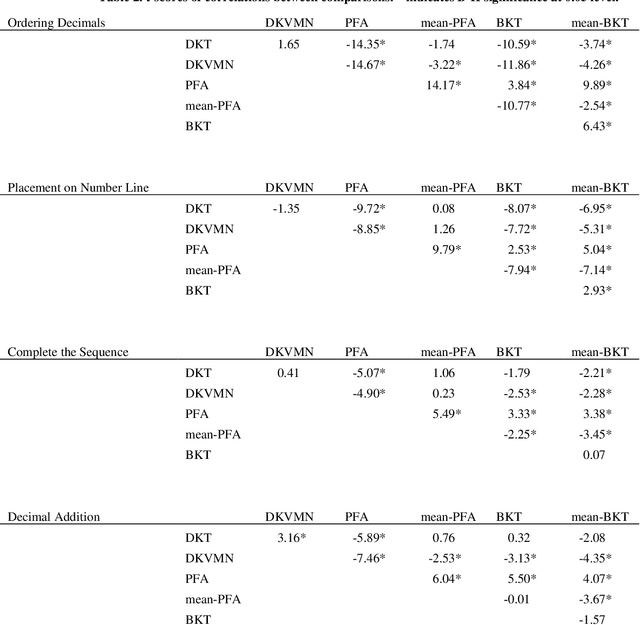Bruce M. McLaren
Evaluating ChatGPT's Decimal Skills and Feedback Generation in a Digital Learning Game
Jun 29, 2023



Abstract:While open-ended self-explanations have been shown to promote robust learning in multiple studies, they pose significant challenges to automated grading and feedback in technology-enhanced learning, due to the unconstrained nature of the students' input. Our work investigates whether recent advances in Large Language Models, and in particular ChatGPT, can address this issue. Using decimal exercises and student data from a prior study of the learning game Decimal Point, with more than 5,000 open-ended self-explanation responses, we investigate ChatGPT's capability in (1) solving the in-game exercises, (2) determining the correctness of students' answers, and (3) providing meaningful feedback to incorrect answers. Our results showed that ChatGPT can respond well to conceptual questions, but struggled with decimal place values and number line problems. In addition, it was able to accurately assess the correctness of 75% of the students' answers and generated generally high-quality feedback, similar to human instructors. We conclude with a discussion of ChatGPT's strengths and weaknesses and suggest several venues for extending its use cases in digital teaching and learning.
Extending Deep Knowledge Tracing: Inferring Interpretable Knowledge and Predicting Post-System Performance
Oct 14, 2019

Abstract:Recent student knowledge modeling algorithms such as DKT and DKVMN have been shown to produce accurate predictions of problem correctness within the same learning system. However, these algorithms do not generate estimates of student knowledge. In this paper we present an extension that infers knowledge estimates from correctness predictions. We apply this extension to DKT and DKVMN, resulting in knowledge estimates that correlate better with a posttest than knowledge estimates produced by PFA or BKT. We also apply our extension to correctness predictions from PFA and BKT, finding that knowledge predictions produced with it correlate better with the posttest than BKT and PFA's own knowledge predictions. These findings are significant since the primary aim of education is to prepare students for later experiences outside of the immediate learning activity.
 Add to Chrome
Add to Chrome Add to Firefox
Add to Firefox Add to Edge
Add to Edge